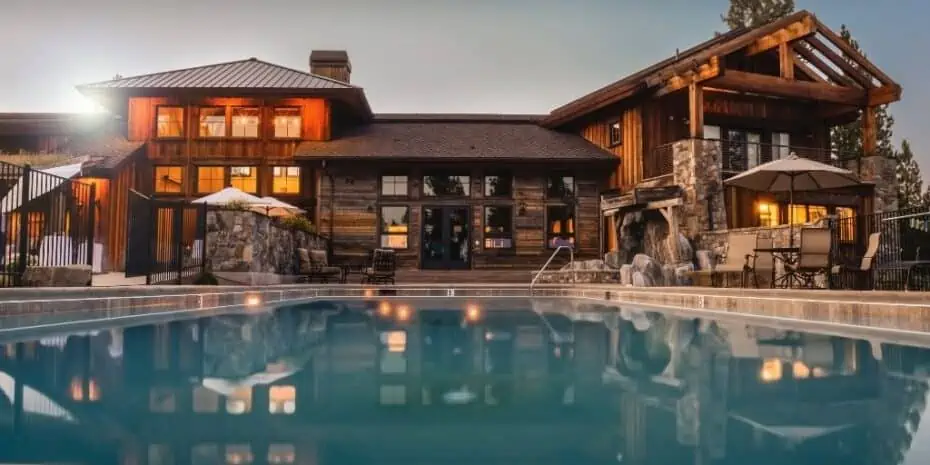What Is Fractional Ownership?
REtipster does not provide legal advice. The information in this article can be impacted by many unique variables. Always consult with a qualified legal professional before taking action.
How Does Fractional Ownership Work?
Fractional ownership splits ownership interest with other owners. In effect, it lowers the barrier of entry for real estate investing, allowing people to own property that they cannot afford on their own and get started in real estate investing[1].
Co-owners share the costs and benefits of the property in proportion to their equity, or share of the ownership. They are responsible for ongoing costs, including maintenance, repairs, and property management fees. However, they also receive benefits, such as personal usage rights, rental income, and profits from future resale.
The exact terms of these agreements vary, but in most cases, a third-party property manager is responsible for the day-to-day upkeep of the property. The PM may also be responsible for scheduling the co-owners’ use of and access to the property.
Fractional ownership usually applies to upscale real property. These properties include vacation homes, resort villas, high-end condominiums. However, it can also apply to other assets that are typically too expensive for individual owners, such as commercial aircraft[2].
Types of Fractional Ownership Arrangements
Fractional ownership is a broad term in the investment space. As such, it is important not to confuse it with other forms of shared ownership arrangements.
Some of the most commonly used terms and jargon in fractional ownership include:
Private Residence Clubs (PRC)
Private residence clubs are on the uppermost tier of the fractional real estate market. They provide owners with all services and amenities of a luxury hotel alongside part ownership of a specific property (or properties).
The ownership period is typically expressed as a fraction, such as 1/2, 1/10, and 1/12[3], meaning two to 12 owners can share ownership of these properties.
There are two main kinds of PRC arrangements: unit-specific and non-unit-specific. Under unit-specific PRCs, the owners may only use a particular unit based on their allotted usage period. Under a non-unit-specific PRC, the owner may use whichever unit (within the same category) is available at the time, provided it is still within their allotted usage period.
Equity and Non-Equity
In an equity fractional arrangement, a fractional owner receives a deed describing their shared ownership. Owners with such a deed can sell or transfer all or a portion of their ownership to another. They can also list this equity among their assets since they legally own it.
On the other hand, non-equity co-owners can only use the shared property over a given period based on the terms of the agreement. Their ownership is limited to their usage rights.
In general, equity fractional arrangements are ideal. Actual ownership of the property can mean less risk and greater control over property management, regardless of whether it is shared.
Quarter Share
As the name implies, quarter share describes a fractional ownership arrangement where property ownership is split equally among four owners. Under this arrangement, only one owner will be allowed to use the property at a particular time.
Timeshare
The main difference between timeshare and fractional ownership is that the latter describes an arrangement where the shared usage of the property is based only on time. As a result, timeshare owners usually have no direct say in how the property is used, maintained, or sold. In addition to the fee associated with being allotted timeshare usage rights, the users also pay an ongoing maintenance fee to the management company in charge of the property.
In other words, a timeshare is a non-equity arrangement as described above.
On the other hand, fractional ownership affords ownership interest. The participants pay a one-time fee to own a share of ownership that they can later sell or transfer.
That said, some timeshare agreements are deeded[5], where the deed represents ownership interest. In these agreements, co-owners of the timeshare property have fractional ownership, making it equity-based ownership, as mentioned earlier.
What are the Advantages and Disadvantages of Fractional Ownership?
Fractional ownership has its pros and cons, as outlined below.
Advantages
- Property ownership is more accessible. Fractional ownership grants property at a lower upfront cost. For example, a $5,000,000 beachfront house may be too cost-prohibitive for many people, but splitting that amount with up to 12 people can make owning it much more accessible and practical.
- Reduced upkeep costs. Under fractional ownership, the property’s upkeep and repair costs are split among the owners. This arrangement makes it less expensive overall for each owner to maintain the property than if only one of them had sole ownership.
- Potential for rental income. Fractional ownership gives owners some control over the management of the property, allowing them to use it to earn rental income.
- Usage rights. Co-owners in a fractional ownership arrangement may use the property and its amenities. Exclusivity and length vary depending on the size of their share.
- Ownership is transferable. If a co-owner decides they no longer want to use the property, they can sell their fractional ownership to someone else[6]. Owners can also transfer ownership rights to their children or other family members.
Disadvantages
- Substantial outlay. While fractional ownership lowers the overall upfront cost, it still requires a relatively substantial one-time payment. This fact thus makes it more expensive in the short term in contrast to making a small down payment and paying off the balance over several years.
- Slower decision-making. As with all things that require group consensus, making decisions in a fractional ownership arrangement is generally slower and more cumbersome. For example, selling the property itself is often complicated, since every owner has to consider several factors, including the terms of the agreement and the valuation of the stake at the time of resale.
- Possible restrictions from homeowners’ associations. Fractionally owned properties may be subject to restrictions from the local HOA in the area[7]. For instance, they could impose new fees on such properties since the property only offers transient usage.
Is It a Good Idea to Invest in Fractional Ownership?
Fractional ownership can offer its owners access and use of high-end property, especially in a location with high demand and tourist traffic. For lifestyle and personal purposes, fractional ownership makes sense.
However, investing in fractional ownership and expecting good financial returns is not only unrealistic but also a recipe for disaster. One of the biggest reasons is that resorts and similar areas where fractional ownership is offered often depreciate because they get less attractive with age[8]. In fact, properties in these areas usually sell for as little as 20% of their original value[9] at resale.
Financing Fractional Ownership
In most cases, fractional ownership is financed through direct cash investments[10]. Even though fractional ownership has been around for over 30 years, it still has not gained enough popularity as a financial product that banks and mortgage lenders are readily willing to finance.
That said, it is definitely possible to negotiate a mortgage for all or part of a fractional ownership opportunity. However, buyers must be willing to put in the time and effort to find lenders that can accommodate and offer such financing.
Takeaways
- Fractional ownership describes shared ownership of high-end property, usually a luxury vacation home, resort community, or expensive condominium. It can also apply to assets that are too expensive for individual buyers, such as commercial aircraft.
- It is attractive to homebuyers because it allows them to own expensive real estate at a fraction of the cost. Splitting ownership interest this way allows co-owners to have a proportionate say on the upkeep and profit potential of the property.
- However, because fractional ownership is usually offered in tourist destinations that typically depreciate as they age, it is less a financial investment but a personal and lifestyle one.
Sources
- MasterClass. (2021) Fractional Ownership: How Co-Ownership Works in Real Estate. Retrieved from https://www.masterclass.com/articles/fractional-ownership
- AOPA Pilot Information Center. (n.d.) Fractional Ownership: Overview. Aircraft Owners and Pilots Association. Retrieved from https://www.aopa.org/pic-archive/aircraft-ownership/fractional-ownership-overview
- TimeshareMyWay. (n.d.) The Types and Categories of Fractional Ownership Arrangements. Retrieved from https://www.timesharemyway.com/fractionalownership.php
- Sirkin, A. (n.d.) The Types and Categories of Fractional Ownership Arrangements. Sirkin Law. Retrieved from https://andysirkin.com/fractional-ownership/general-information/terminology/
- Sharkey, S. (2021.) What is a timeshare? Bankrate. Retrieved from https://www.bankrate.com/real-estate/eyeing-a-timeshare-find-out-how-it-works/
- Jensen, H. (2020.) How do you transfer your ownership interest in a property? FreeandClear. Retrieved from https://www.freeandclear.com/community/can-a-property-owner-sign-the-deed-over-to-another-person
- Sirkin, A. (n.d.) Fractional Ownership – Answers To Frequently Asked Questions. Sirkin Law. Retrieved from https://andysirkin.com/fractional-ownership/general-information/frequently-asked-questions/
- Luxury Fractional Guide. (2018.) Is Fractional Ownership a Good Investment? Retrieved from https://luxuryfractionalguide.com/is-fractional-ownership-a-good-investment/
- SellMyTimeshareNow. (2020.) Timeshare Resales. Retrieved from https://www.sellmytimesharenow.com/timeshare-resales/
- Katz, L. (2021) Fractional Ownership in Real Estate. Millionacres. Retrieved from https://www.millionacres.com/real-estate-basics/fractional-ownership-real-estate/










